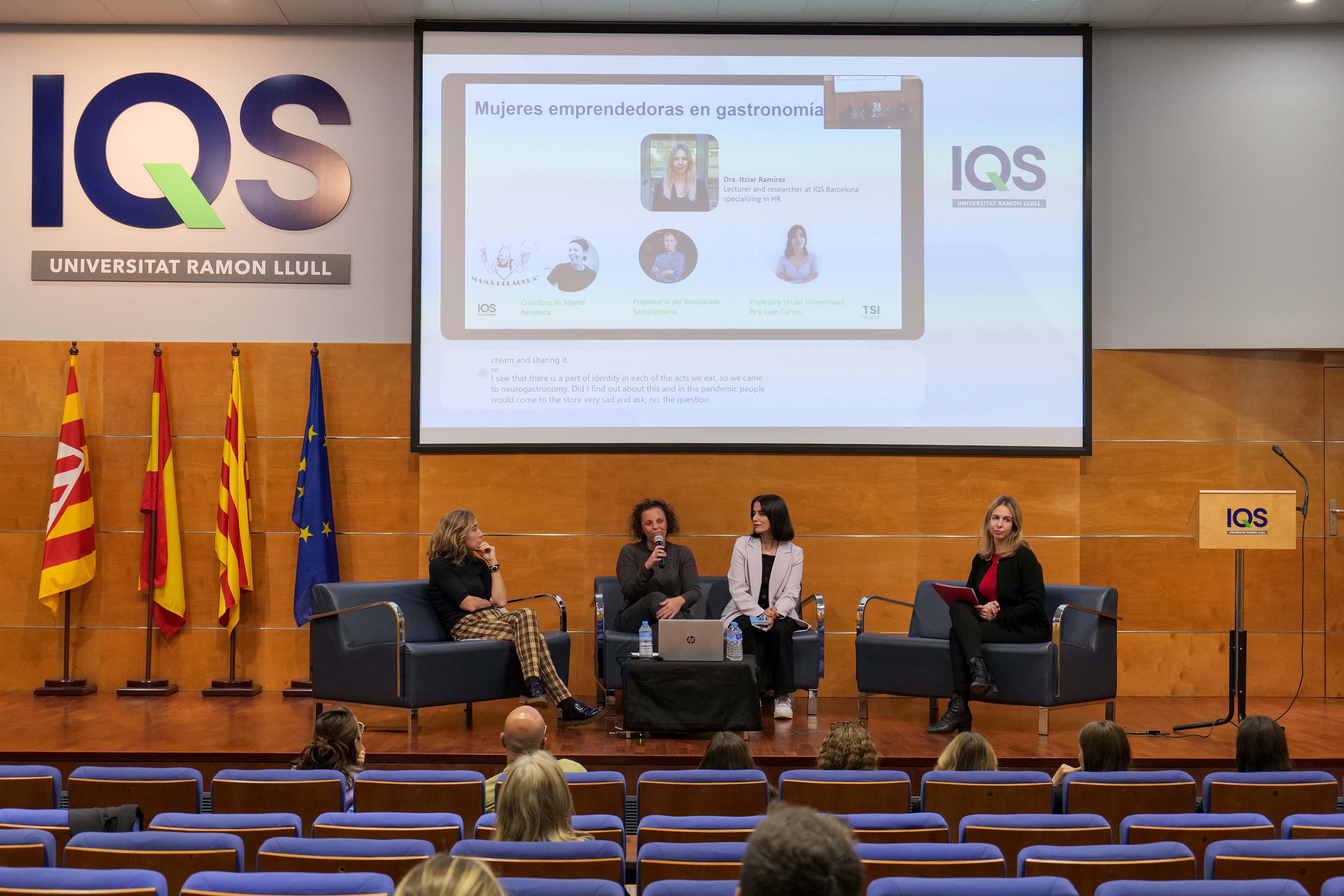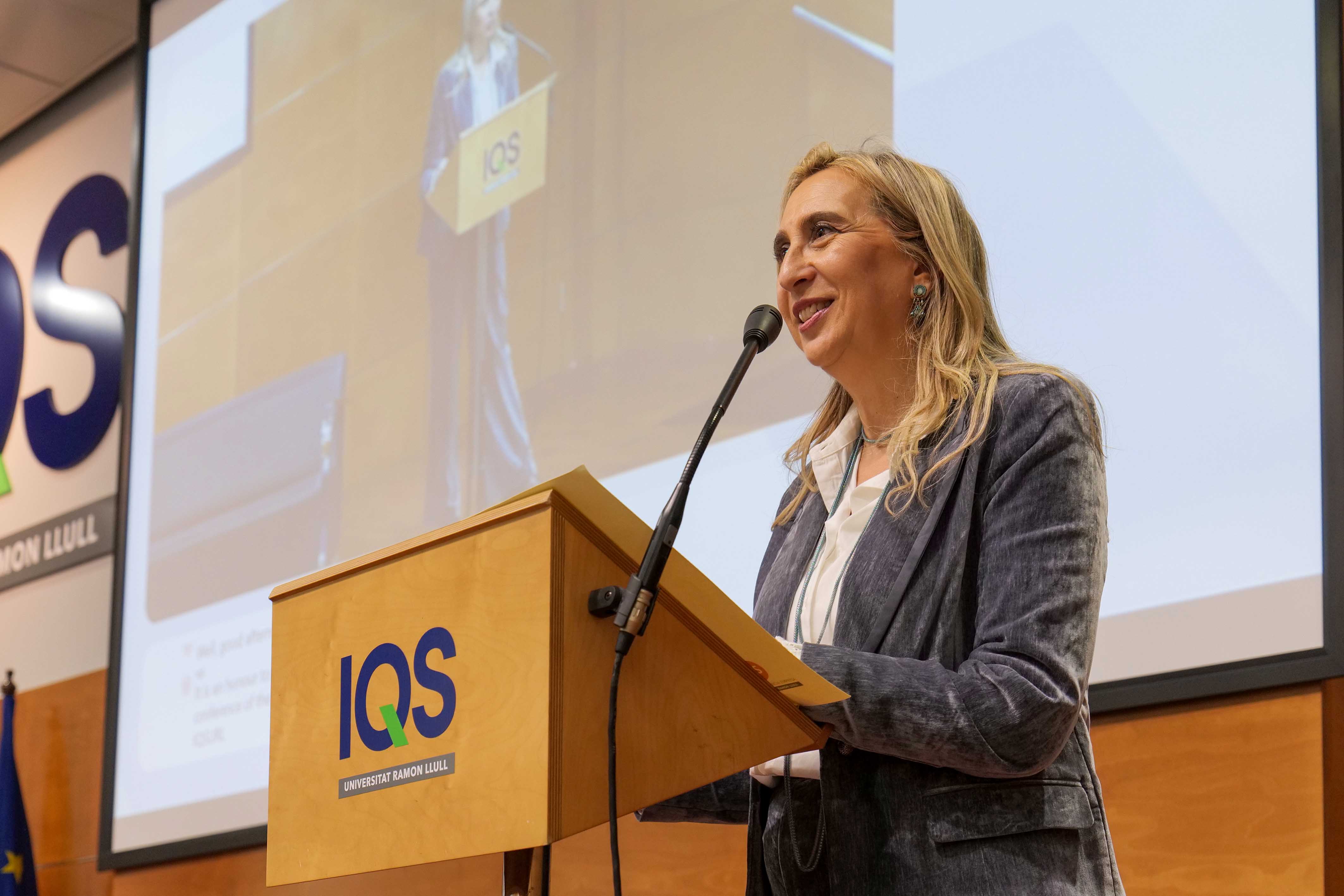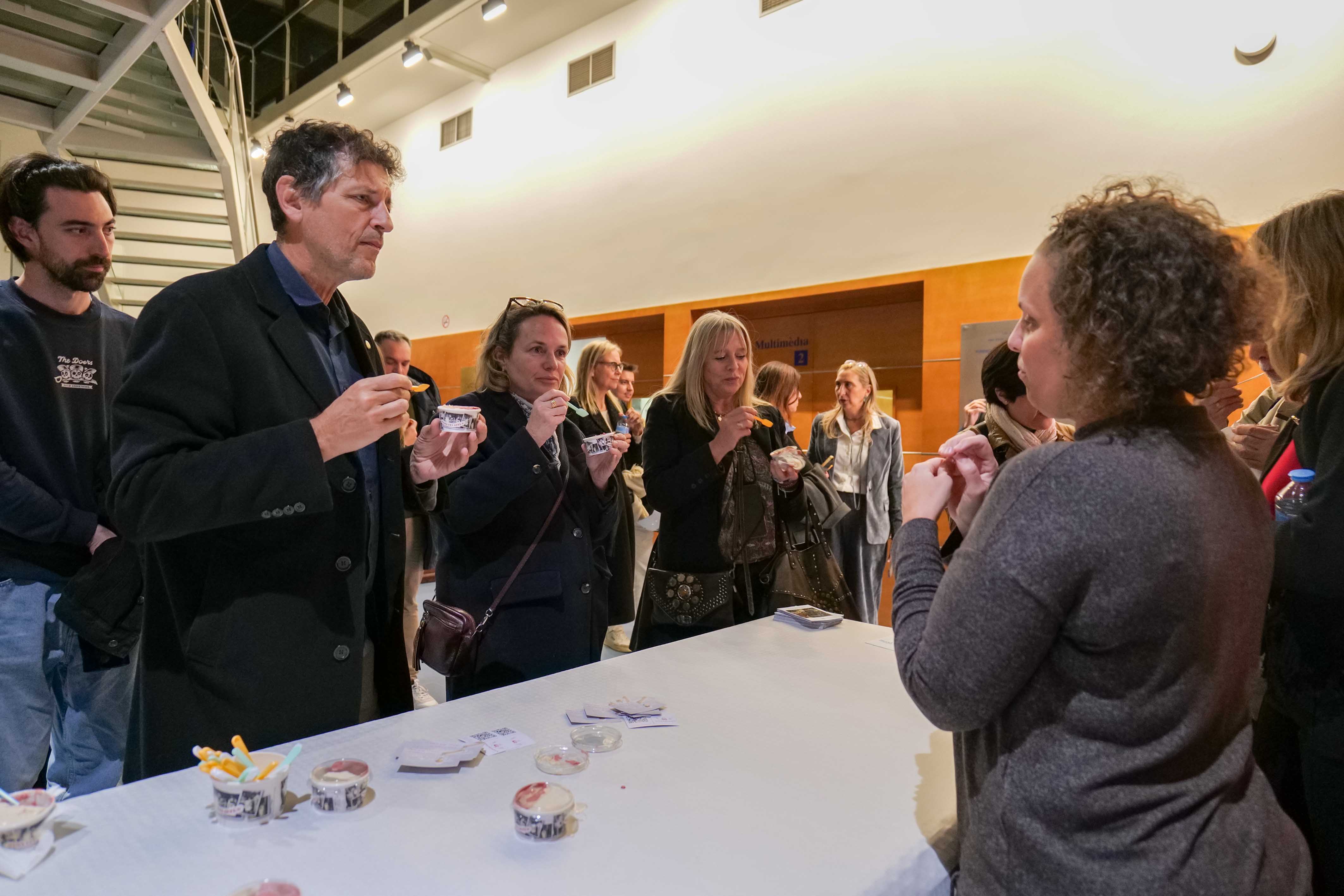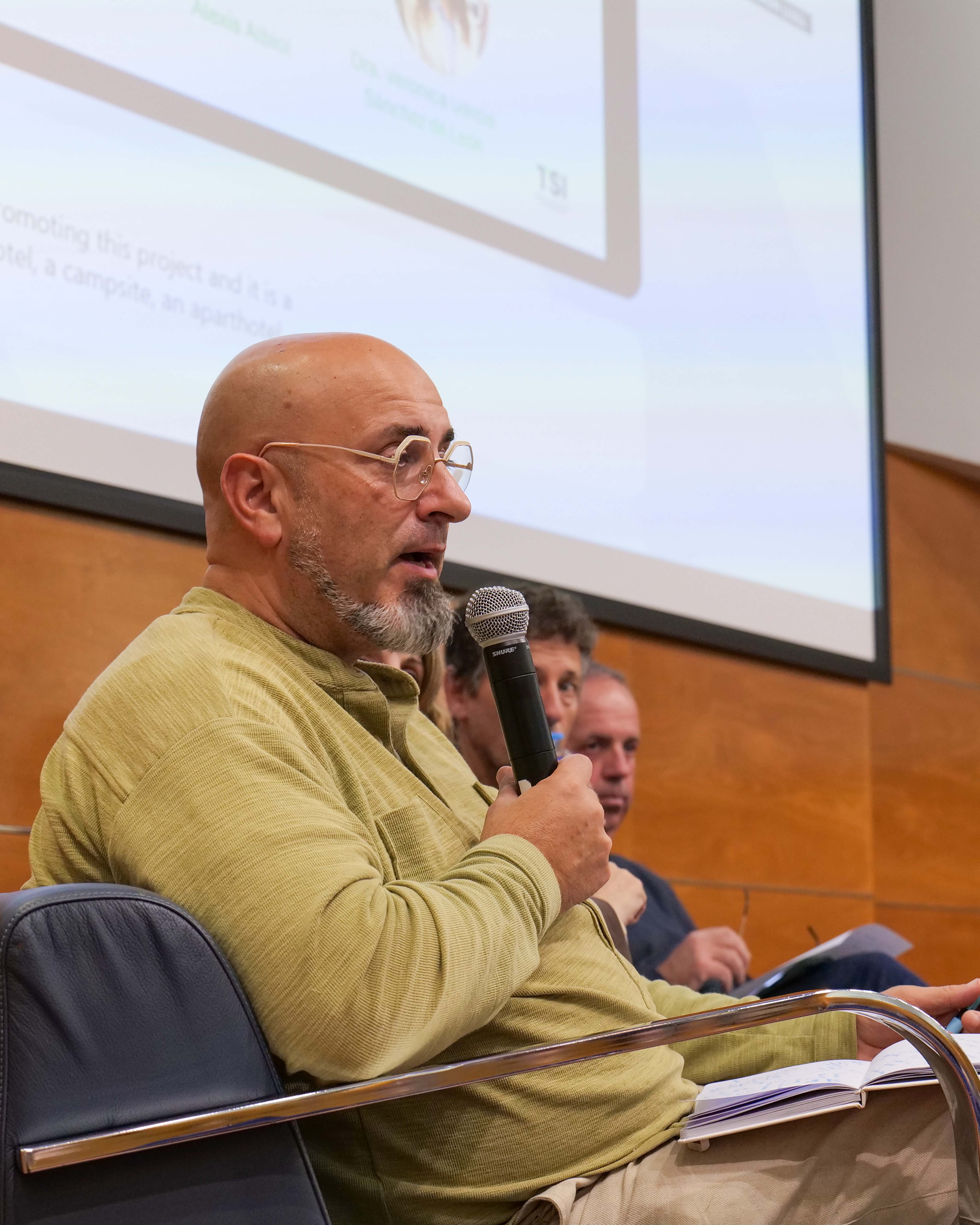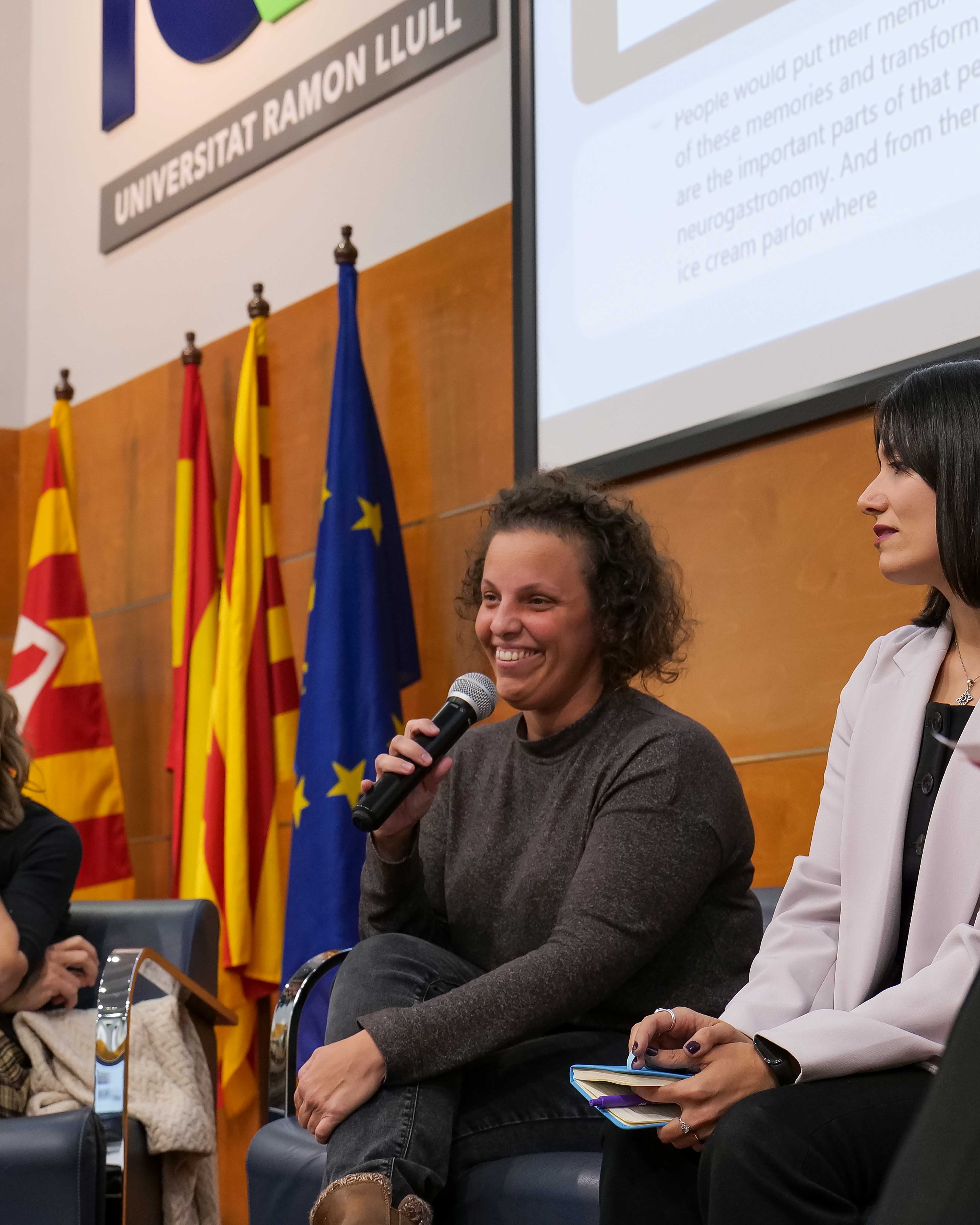The tourism sector is at a crossroads, where economic profitability can no longer be separated from social and environmental impacts. This was the main conclusion of the 4th Annual Conference hosted by the IQS-URL Department of Tourism, Sustainability, and Innovation, held in collaboration with Barcelona City Council on 24 November at the IQS campus. Under the title Social Entrepreneurship with an Impact on Tourism, the event brought together experts and academics alongside prominent figures such as restaurateur Ada Parellada to discuss how tourism initiatives can serve as engines for change, territorial cohesion, and social justice.
Regenerative Tourism and Female Leadership at the Core of IQS Debate to Build a More Just Sector
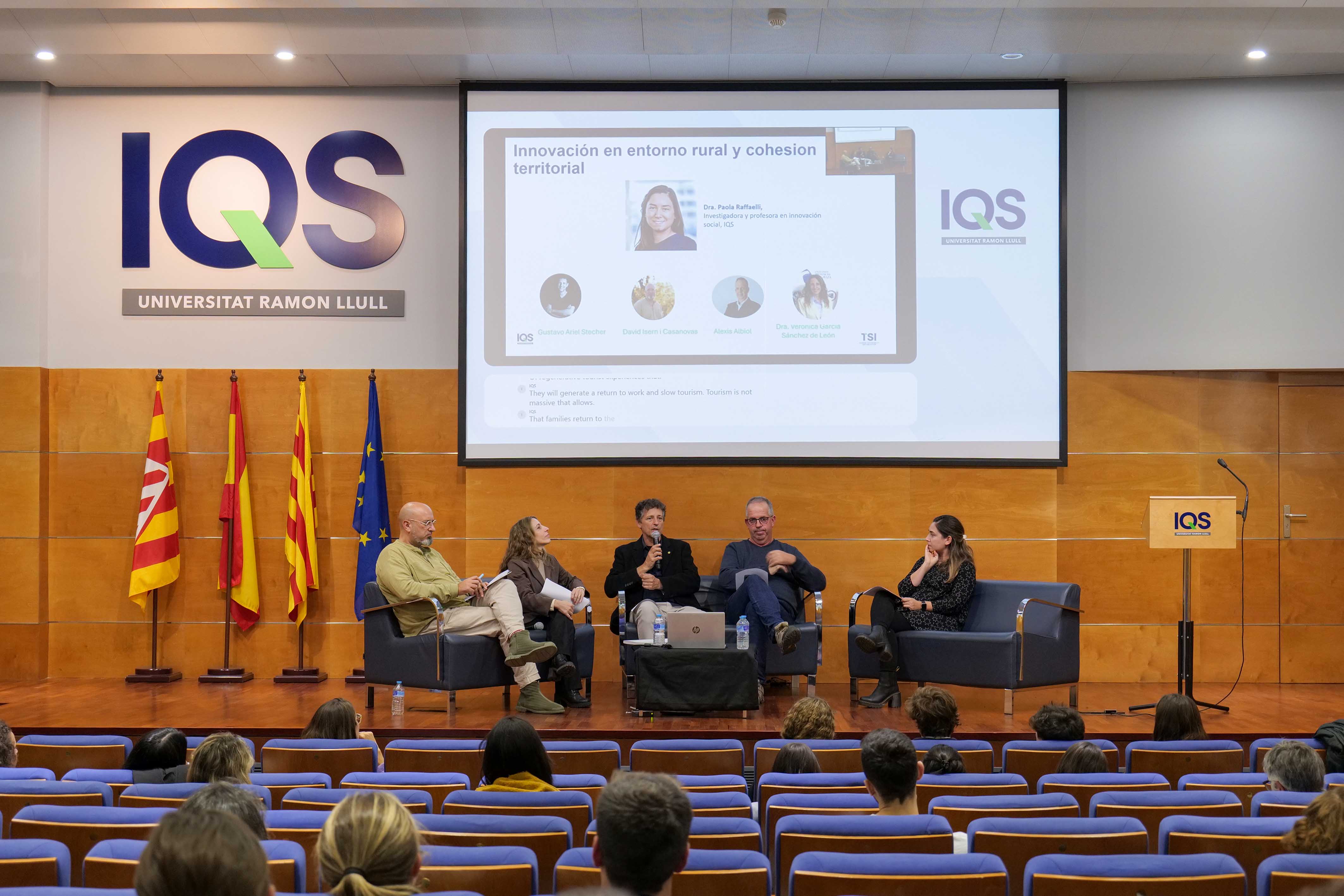
The welcome address was delivered by Dr Carlos Malet, Associate Director of Strategy and Business at IQS, and Dr Daniela Freund, Associate Professor at IQS and Acting Director of the Department, who highlighted the importance of creating spaces for academic and business reflection to tackle the challenges of a more conscious tourism.
From “Tourism That Consumes” to “Tourism That Contributes”
Following the institutional opening, the conference began with a keynote speech by Raquel Priego, co-founder of Trip To Help, who set the tone with her talk From Tourism That Consumes to Tourism That Contributes. Priego explored the paradigm shift needed to avoid what she termed “emerging neocolonialism” in the industry, where profits do not benefit the destination.
During her presentation, Priego urged attendees a move beyond the sector’s traditional dichotomy: “The question is: do we create tourism that consumes and consumes us, or tourism that regenerates ecosystems, communities, and economies?” she asked.
She shared the model of her own agency, Trip To Help, as an example of breaking away from traditional intermediation, explaining how they remove barriers to maximize local returns. “Eighty per cent of the money you invest in that trip goes directly to a social project or an empowered community; we don’t prioritize a country’s GDP, but rather the Human Development Index,” Priego stated.
Rural Innovation Against Depopulation
Next, the first panel, moderated by Dr Paola Raffaelli, researcher and lecturer in social innovation at IQS, explored how tourism can revitalize areas threatened by depopulation without falling into gentrification or a loss of identity.
Alexis Albiol, Mayor of Godall and President of the Lacrima Olea cooperative, offered a compelling testimony about the survival of rural areas in view of large agricultural capital. “Instead of trying to get bigger, we decided to get smaller and more sustainable. We can’t compete with large machine-harvested crops. In our area we have olive trees that are over a thousand years old, and that’s what sustainable tourism allows us to showcase,” said Albiol, emphasizing local identity as an irreplaceable asset.
Similarly, David Isern, leader of Cerdanya Viva, introduced the concept of regenerative enterprise applied to mature destinations. Isern described his organization’s cultural transformation: “We realized that we were not merely using our region; we had to listen to it.” He also highlighted the importance of overcoming traditional hierarchies to foster genuine collaboration within tourism teams.
The panel further explored regional brand building with Gustavo Ariel, CEO & Founder of Membranding, who warned of the challenges in creating authentic identities. “The difficult part is moving from the self to regional identity, understanding which values are shared,” he stated, emphasizing that a community’s true identity is built with additive and shared elements, not imposed ones.
Dr Verónica García, Director of the Gender and Tourism programme at the Provincial University of Ezeiza, provided an academic perspective on local development, stressing that success cannot be measured solely in numbers: “I don’t speak only in terms of economic growth, but of measures that facilitate people’s quality of life and a connection to their place of origin,” she said, advocating for complementary tourism that slows young people from migrating to large cities.
Women in Gastronomy: Ethics and Memory
The second panel, focusing on “Female Culinary Entrepreneurs” and moderated by Dr Itziar Ramírez, researcher and lecturer in organizational psychology at IQS, revealed that female entrepreneurship in the sector is often accompanied by a strong ethical and social dimension.
Renowned restaurateur Ada Parellada, owner of Restaurant Semproniana, shared her experience of over 32 years, highlighting the surrounding distrust as a paradoxical motivator for many women: “Everyone doubted and distrusted me, and I think that was my great driving force.” Parellada also emphasized the social power of meals: “Let’s not lose meals, because it’s what truly makes us human; if you maintain family meals, you’ll have the motivation to cook.”
Innovation driven by emotion came from Irene Iborra, founder of Mamá Heladera, who explained her approach to neurogastronomy to connect with clients’ identities: “I decided to create an ice cream shop where people could bring their memories. We transform those memories into ice cream, based on the perception of flavour.”
Meanwhile, Dr Alicia Orea, Associate Professor at Rey Juan Carlos University and a social technologist for regenerative and intersectional tourism, shared key data on the profile of female entrepreneurs. She noted that “38.5% of women undertake ventures with an ethical dimension and a quest for social justice, aiming to make the world a better place,” often prioritizing collective well-being over purely commercial logic.
The conference was brought to a formal close by Dr Daniela Freund, who stressed that social entrepreneurship is not a passing trend but a pressing necessity to ensure the long-term economic viability of the sector.










